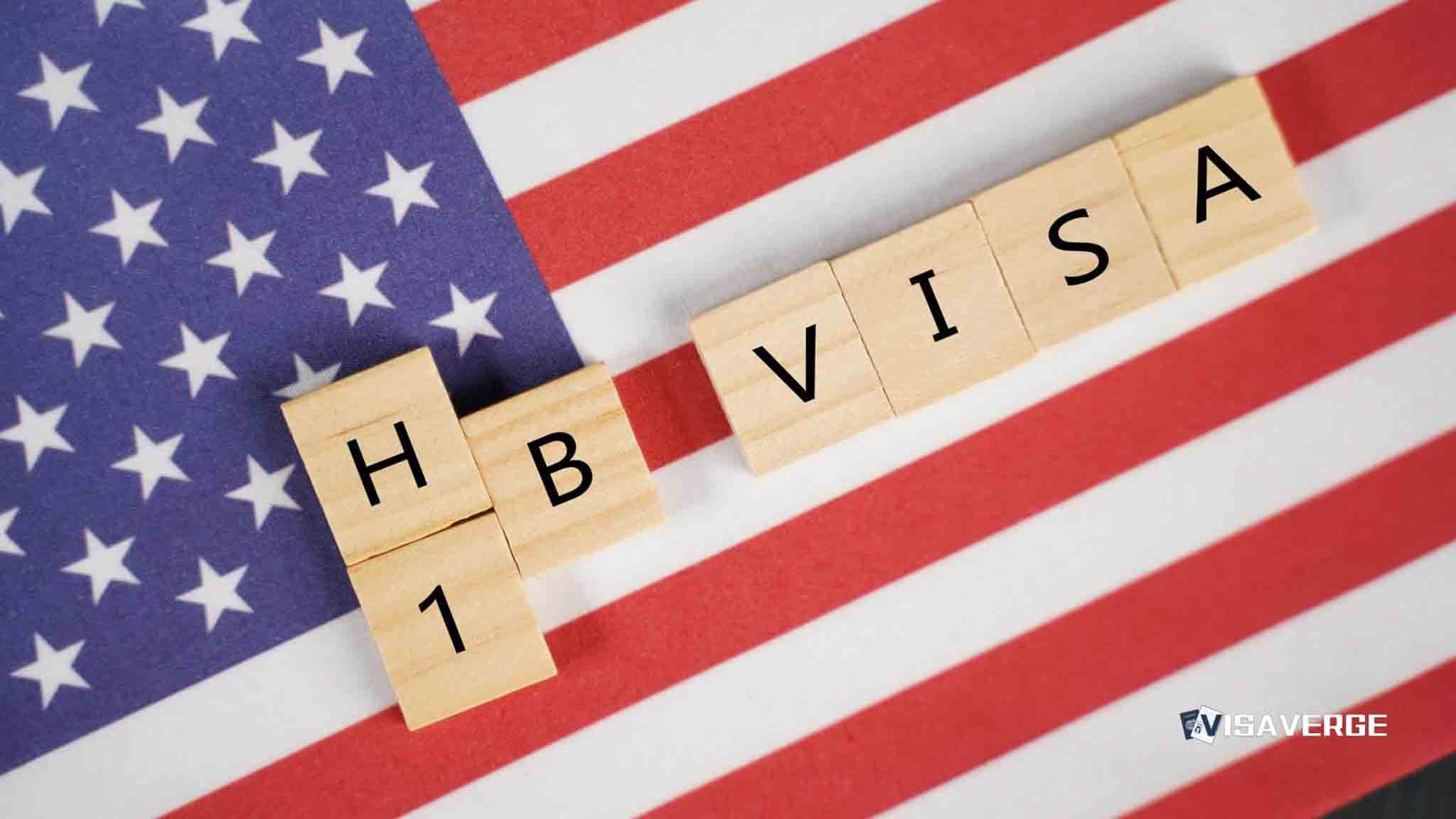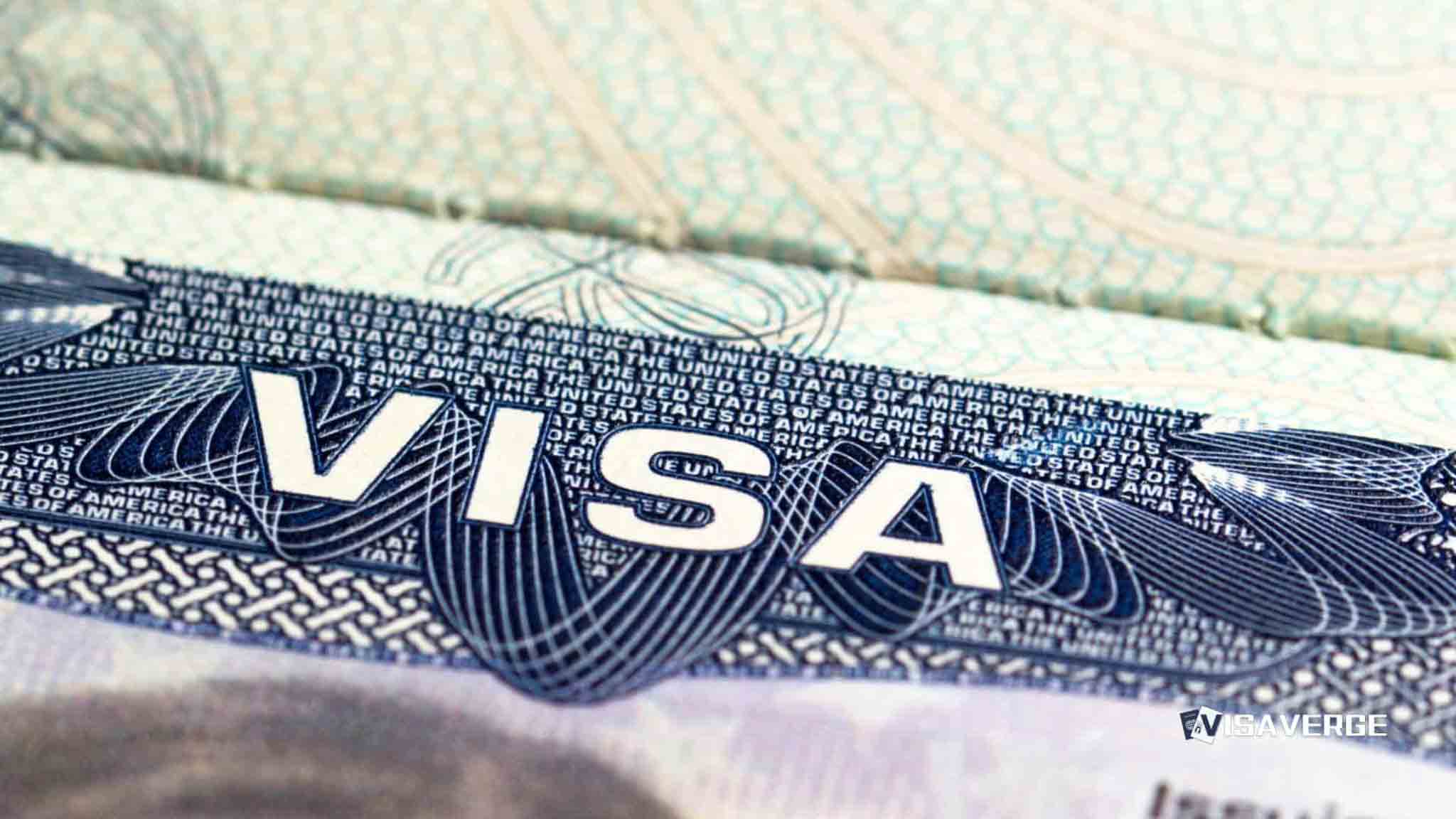Key Takeaways
• Amazon leads FY2024 with 9,265 approved H-1B visas; Infosys follows with 8,140 approvals.
• Staffing firms handle nearly half of new H-1B visas, especially for banks and telecoms.
• USCIS tightened FY2025 H-1B lottery rules, reducing duplicate entries from 759,000 to 470,342.
The demand for skilled foreign workers in the United States 🇺🇸 continues to stay strong, especially through the H-1B visa program. This program allows U.S. companies to bring in highly skilled workers from other countries, often in areas like technology, finance, healthcare, and engineering. As the H-1B visa landscape changes in 2025, it’s clear that new trends are shaping who gets these jobs, who sponsors the visas, and how the approval system works.
This article breaks down the latest data, looks at which companies are leading H-1B sponsorship, explains why some new sectors are coming to the front, and provides helpful advice for anyone—whether workers, employers, or families—involved in the H-1B process. Special focus is given to top companies such as Infosys and Amazon, as well as how changes in law and policy may affect the system going forward.

A Changing H-1B Landscape: Who Leads in Sponsorship?
Data released by U.S. Citizenship and Immigration Services (USCIS) for fiscal year 2024 shows a few surprises and some solid trends. Let’s start with a quick look at the leading companies:
| Employer | FY2024 Approved H-1B Beneficiaries |
|---|---|
| Amazon Com Services LLC | 9,265 |
| Infosys Limited | 8,140 |
| Cognizant Technology Solutions | 6,321 |
| Google LLC | 5,364 |
| Tata Consultancy Services Limited | 5,274 |
| Meta Platforms Inc | 4,844 |
| Microsoft Corporation | 4,725 |
| Apple Inc. | 3,873 |
| HCL America Inc | 2,953 |
Source: USCIS and news reports, March–June 2025
Amazon came out on top, with more H-1B approvals than any other company—9,265 in total. Following Amazon, Infosys stayed near the top, getting 8,140 approvals. Importantly, Indian IT firms—like Infosys, Tata Consultancy Services (TCS), Cognizant, and HCL America—still make up a big part of total sponsorships, with about 24,766 approvals out of the estimated 130,000 H-1B visas issued between April and September 2024.
Indian companies now account for around one in five newly approved visas. That’s a huge number, showing their continued power. But, as reported by VisaVerge.com, U.S. banks and telecom companies are starting to change the picture by hiring more foreign workers, often using staffing agencies instead of hiring directly. This shift points to a more mixed group of employers and job sectors entering the H-1B space.
The Rise of Staffing Firms and Non-Tech Employers
Over the last four years (May 2020–May 2024), non-tech employers like banks and telecom companies have sharply increased their use of H-1B visas. Rather than hiring workers directly, these organizations often go through outside staffing or outsourcing companies. Nearly two-thirds of new H-1B visas for these sectors were handled by outside firms, like Tata Consultancy Services.
For example, Citigroup added more than 3,000 new H‑1B contractors during this period. That number beats many well-known Silicon Valley employers. The same goes for telecom giants like AT&T. These staffing or “visa middlemen” now control almost half of all the new H-1B visas each year, according to Bloomberg.
This growing trend is seen in fields like:
- Banking and finance: Banks struggle to hire enough skilled tech workers and use H-1B programs to fill big gaps.
- Healthcare and insurance: IT and data jobs are vital for these businesses, making them turn to consulting firms for help.
The data shows that the power is shifting. Once, a few big tech names dominated all H-1B hiring. Now, other sectors—and the staffing agencies that work with them—hold an ever-larger piece of the pie.
Big Tech’s Changing Role
Tech companies remain strong in the H-1B system, but after the mass layoffs in Silicon Valley during late 2022 and early 2024, some of them have dialed back. Meta, for example, saw fewer approvals than TCS or Cognizant. Still, Amazon stood apart by getting the most H-1B approvals, breaking the pattern and showing that if business needs grow, direct tech hiring can jump again.
Meanwhile, Apple, Microsoft, and Google are still top players, but their shares have slipped as more sectors and staffing firms have come into the picture. The lesson for workers is that focusing only on the top tech companies may no longer give the best shot at an H-1B visa.
Policy Changes for FY2026: Targeting Fraud and Duplicates
In FY2024, the H-1B lottery system faced big problems with duplicate and fraudulent entries. Some people tried to increase their chances by submitting multiple registrations. In response, USCIS made stricter eligibility checks for FY2025.
Here’s what happened:
- Lottery registrations fell from almost 759,000 last year to about 470,342 this spring—a sharp drop. This wasn’t because demand dropped, but because anti-fraud measures worked.
- The odds of being picked in the lottery remain low. For both this year and projections for the next, between 16% to 23% of registrants will be selected—less than one in six.
Visual description: If you imagine a pie chart for all applications, only a small “slice” represents those picked in the lottery, while the rest are left waiting. These tougher checks mean companies must be careful to play by the rules and that applicants cannot try to game the process.
About the process: Each spring, employers use an online system to register their interest. Now, the system checks that each registration is tied to a unique person with no duplicates allowed. The lottery is then held, and selected candidates file formal H-1B petitions starting in April. The total cap remains 85,000 each year, with 20,000 spots set aside for people holding advanced degrees from U.S. universities.
Explore the process and policy updates directly from USCIS’s H-1B page.
Scrutiny on Staffing Firms and Worker Protection
As staffing and outsourcing firms take up nearly half of H-1B allocations, U.S. government agencies are taking a closer look at their practices. Enforcement has centered on issues like:
- Benching: This term means a worker is sent to the U.S. but has to wait—sometimes unpaid—until a real job assignment starts.
- Discrimination: Federal regulators opened an investigation into Tata Consultancy Services in June 2025 after claims it favored Indian workers. TCS denies any wrongdoing.
There is growing pressure from both regulators and advocacy groups for all H-1B sponsors—not just the big Indian consulting firms—to follow wage, assignment, and documentation rules more closely.
For workers, this means that jobs linked to staffing agencies might come with extra risks. It’s vital to ask clear questions about start dates, pay, and job security before signing on.
Political Shifts and the Outlook for H-1B Policy
Looking ahead, the political mood could bring more change. With President Trump’s return to office shaping debates on U.S. immigration, experts expect possible calls to tighten rules or prioritize American workers further. It’s uncertain exactly how new changes will impact approval rates or lottery odds, but stakeholders should watch closely as the FY2026 cycle approaches.
Policy shifts could mean:
- Stricter eligibility or documentation requirements.
- New rules on how many visas staffing firms can control.
- Possible delays or changes in who qualifies, especially for certain countries.
For all those following H-1B news—both applicants and businesses—being ready for policy swings is a must until there’s more clarity after the election.
H-1B Approval Rates: Still High at Leading Companies
Although there have been broad changes to who gets and sponsors H-1B visas, approval rates for top firms like Infosys remain strong. The numbers speak for themselves:
| Year | Infosys Approval Rate (%) |
|---|---|
| FY 2023 | 98.38 |
| FY 2022 | 99.00 |
| FY 2021 | 97.00 |
Source: h1bgrader.com based on USCIS filings
This means that, for Infosys applicants, almost every H-1B petition is approved. Despite periods of tighter scrutiny—like during earlier years under President Trump—approval rates have bounced back to above 97% for most large firms in recent years.
The H-1B Population: Still Mostly India-Born
One thing that has not changed is where most H-1B recipients come from. According to Pew Research Center, in FY2023, 73% of those approved for H-1B visas were born in India 🇮🇳. Even with more U.S. banks, telecoms, and healthcare companies hiring, the overwhelming majority of new arrivals are Indian nationals. This is partly because Indian IT and engineering education continues to match the needs of American employers, and because Indian firms like Infosys are strong recruiters.
H-4 Dependents and Green Card Backlogs
Family members—spouses and children—of H-1B workers (on H-4 visas) continue to be eligible to join the principal H-1B visa holder in the United States 🇺🇸. However, for those from high-demand countries like India, the path to permanent residency (a green card) can be slow. This is mainly because of country-of-birth limits for green card approvals, which create long waiting lists for Indian nationals.
Best Practices for H-1B Applicants and Employers
For Job Seekers:
- Cast a wide net. Don’t focus only on big tech names—banks, telecoms, and healthcare firms offer more H-1B roles now, often through staffing agencies.
- If applying through a staffing firm, be sure to ask about pay, job assignments, and timing. Avoid employers that cannot guarantee start dates or stable pay.
- Watch closely for news or policy changes, especially after the election.
- Approval rates at leading firms, like Infosys, Amazon, and others, remain strong, but the process is highly competitive.
For Employers:
- Review your processes before registering for each year’s lottery. Mistakes or fraud can now quickly lead to denial.
- Keep records on worker pay and assignments so you’re ready for any audits.
- Prepare backup plans in case the rules change mid-year or during a new administration.
- Continue to check the official USCIS H-1B guidance for any latest updates.
For Families:
- H-4 visa holders can usually join H-1B workers, but getting a green card may take years for those born in countries with high demand, like India.
- Stay informed about changes to work permission for spouses, as these rules can shift based on new government guidance.
Looking Forward: Trends and Predictions
Moving into 2025 and 2026, expect the following:
- Demand for H-1B visas will stay high as shortages in fields like science, technology, engineering, and math (STEM) remain.
- Staffing firms and outsourcing agencies will keep playing a major role; their share of new H-1B hires may grow further unless new rules limit this.
- Enhanced enforcement against registration fraud or worker mistreatment is likely to continue.
- Political and regulatory changes could bring sudden shifts, making it even more important for everyone in the process to stay up to date.
A statement from Citigroup sums up the attitude among top sponsors: “We supplement our [U.S.] workforce with highly skilled visa holders only when needed—and always follow relevant laws.” Keeping to the rules and being ready for changes is smart for everyone.
Conclusion
The H-1B visa program, a key route for skilled foreign workers to join the U.S. workforce, continues to evolve. Indian IT powerhouses such as Infosys remain essential sponsors, but companies like Amazon now top approval lists, showing that demand for global talent is spread across more fields. Banks, telecoms, and consulting agencies are reshaping who gets a visa and how.
With approval rates still high among top employers and major changes in how the lottery works, workers, employers, and families all need to adapt. The main message: keep an open mind, stay informed about updated rules, and always confirm details before making important decisions. The system is competitive and changing rapidly, but with careful preparation, success remains possible.
Visit USCIS’s H-1B specialty occupations page for official information, and follow reporting on platforms like VisaVerge.com for the latest news and analysis.
### Learn Today
H-1B Visa → A U.S. work visa for skilled foreign professionals in specialty occupations requiring specialized knowledge.
USCIS → U.S. Citizenship and Immigration Services, the agency managing visa petitions and immigration processes.
Staffing Firm → A company that hires workers on behalf of other businesses, especially for temporary or contract roles.
Lottery System → A random selection process used by USCIS to allocate limited H-1B visa numbers to applicants.
Benching → When an H-1B worker must wait without pay before starting their actual job assignment.
### This Article in a Nutshell
The 2025 H-1B visa landscape highlights Amazon’s top sponsorship and growing roles for staffing agencies, banks, and telecoms in skilled foreign hiring.
— By VisaVerge.com













